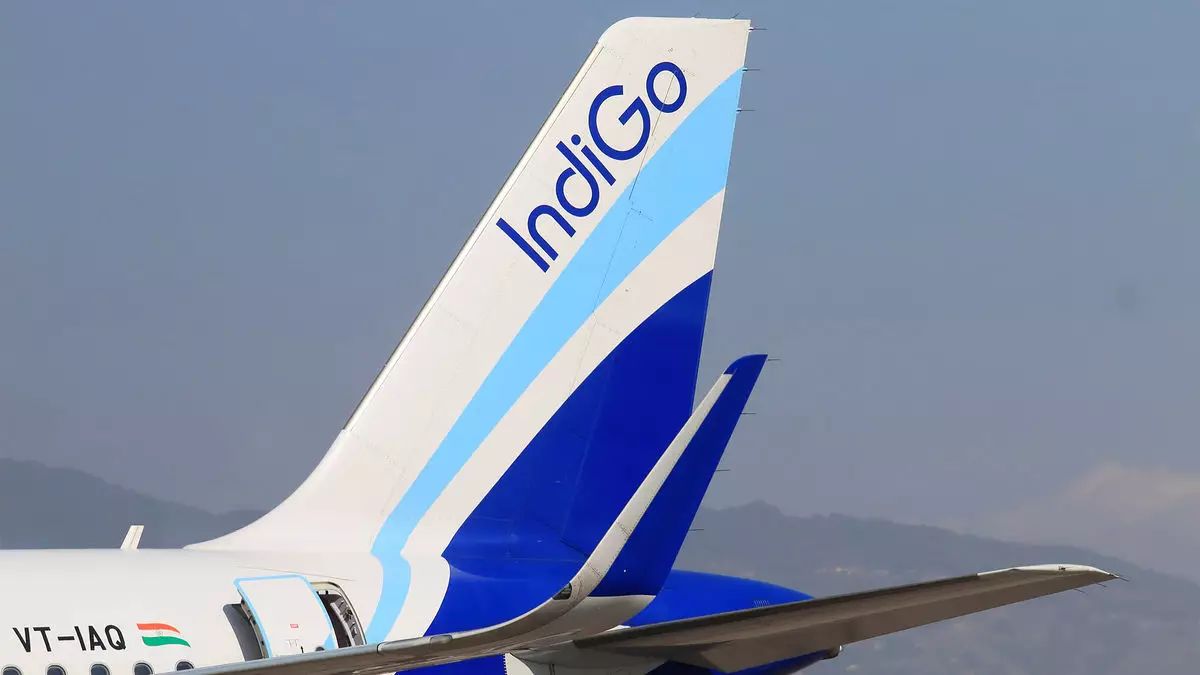In a significant move poised to reshape the aviation landscape, IndiGo, recognized as India’s largest airline, is embarking on its inaugural journey into U.S. codeshare agreements. By aligning itself with major players such as Delta, KLM, and Virgin Atlantic, IndiGo is not only expanding its network but also signaling its aspirations on an international scale. The partnerships will allow passengers from the U.S. and Canada to connect seamlessly via Amsterdam and Manchester, marking a pivotal expansion for an airline that began its journey as a budget domestic carrier nearly two decades ago.
IndiGo’s CEO, Pieter Elbers, expressed the immense potential of these collaborations, which he believes could serve as the foundation for a more integrated global airline model. While these initial codeshares may be modest, they lay the groundwork for future growth and alignment with the transatlantic joint venture alliance involving Delta, Virgin Atlantic, and Air France-KLM. Such collaborations can be transformative, offering passengers a smoother travel experience and greater flexibility.
A Sky Full of Opportunities
The newly announced codeshares are more than just strategic partnerships; they represent a calculated step toward long-haul operations and broader geographic reach. IndiGo has previously established codeshare agreements for over 30 domestic routes with Air France, KLM, and Virgin Atlantic, but this commitment to international markets is a bold escalation in its business strategy. The announcement comes alongside IndiGo’s ambitious plans to leverage its future widebody aircraft, which will enhance its ability to serve international destinations.
Delta’s CEO Ed Bastian, while not currently focusing on deeper integrative strategies with IndiGo, hinted at future possibilities, reflecting the optimism stemming from these new partnerships. This forward-thinking approach, combined with IndiGo’s initiative to eventually establish direct service from India to the U.S., indicates a visionary alignment that could redefine air travel connectivity between the two nations.
Long-Haul Endeavors in the Pipeline
IndiGo’s trajectory is particularly noteworthy as the airline prepares to launch long-haul routes, beginning with flights from Mumbai to Manchester on July 1 and Mumbai to Amsterdam the following day. These inaugural routes are set to be operated using leased Boeing 787 aircraft while the airline awaits the delivery of its first Airbus A350s, expected in 2027. This strategic timing suggests a meticulous planning approach that anticipates market growth while also preparing for the operational demands of international travel.
The announcement of ordering 30 additional Airbus A350s from the previously secured options demonstrates IndiGo’s commitment to a robust fleet that can support its global ambitions. The leap from domestic budget operations to a significant player in international aviation is both audacious and well-timed, especially as the airline sets its sights on expanding its international footprint.
Growing Global Impact
IndiGo’s aspirations could mark a significant evolution in how Indian carriers approach international markets. Currently flying to 41 international destinations alongside a vast domestic network spanning 91 cities, the airline is not content with its achievements so far. It aims to incorporate ten more international destinations within the next year, enhancing its competitive edge.
The potential implications of this growth extend beyond the immediate partnerships. With over 7 million passengers reported to have traveled between the U.S. and India last year, the demand for efficient and affordable air travel routes remains strong. As IndiGo integrates its services into major global networks, it may be positioned to capture a healthy share of this market, offering a compelling alternative to existing airlines.
Challenges Ahead and the Road to Integration
As exhilarating as the path forward appears, challenges remain on the horizon. Regulatory approvals will determine the timeline for the codeshare agreements, leaving many uncertainties in place. Furthermore, while IndiGo seeks to position itself globally, it will need to navigate the complexities of international competition, including established airlines that dominate existing routes.
The optimistic vision shared during the recent press conference underscores an important reality of aviation — that flexibility and adaptability will be key. Elbers and his team will need to remain attuned to the market’s demands and the evolving landscape of international travel ensuring that IndiGo not only enters the global stage but also flourishes on it.
The stage is set for an exciting transformation led by IndiGo, whose strategic moves in international markets could very well redefine the standards for airline performance and customer experience in the Indian aviation sector and beyond.


Leave a Reply